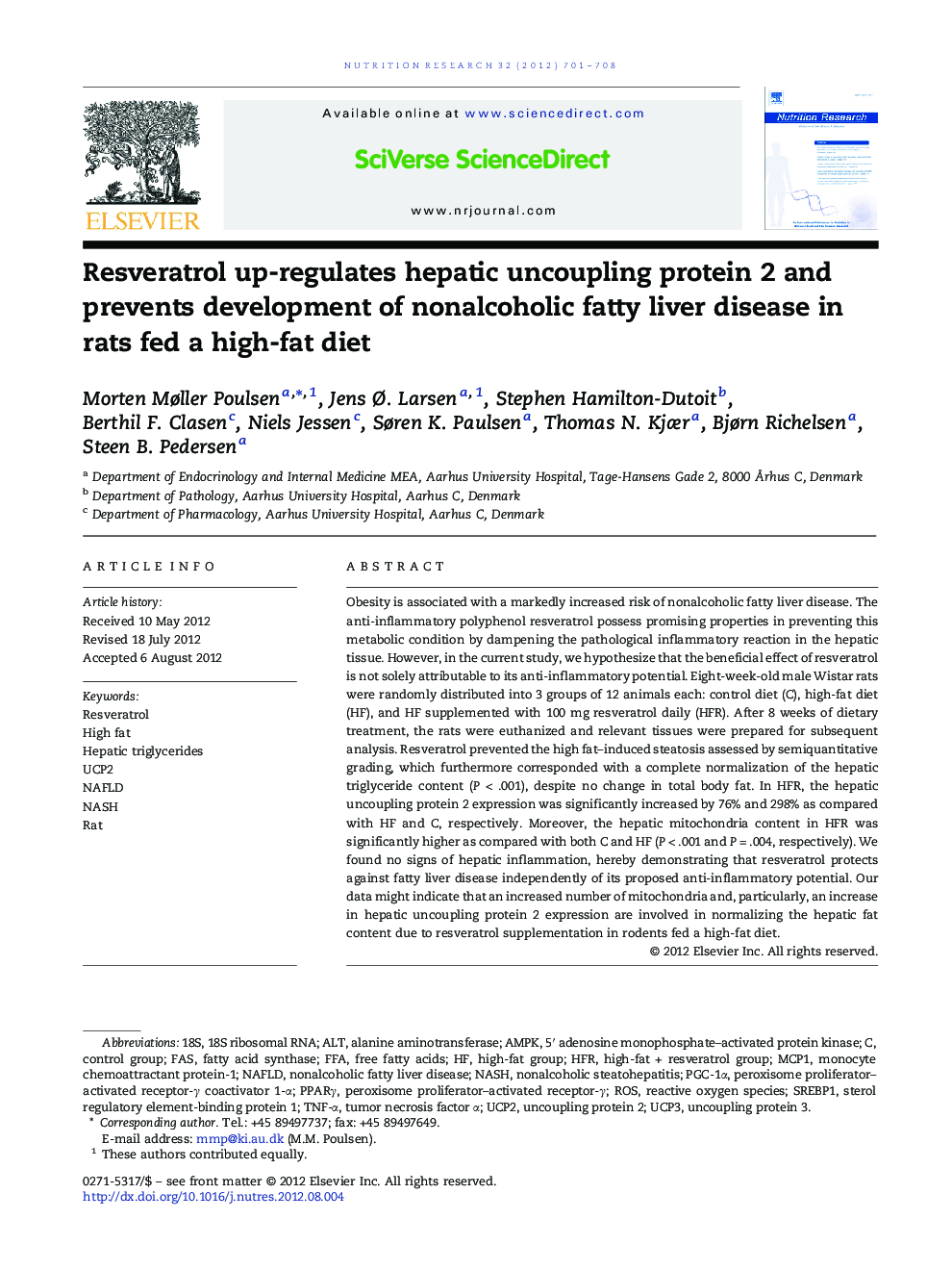| Article ID | Journal | Published Year | Pages | File Type |
|---|---|---|---|---|
| 2809314 | Nutrition Research | 2012 | 8 Pages |
Obesity is associated with a markedly increased risk of nonalcoholic fatty liver disease. The anti-inflammatory polyphenol resveratrol possess promising properties in preventing this metabolic condition by dampening the pathological inflammatory reaction in the hepatic tissue. However, in the current study, we hypothesize that the beneficial effect of resveratrol is not solely attributable to its anti-inflammatory potential. Eight-week-old male Wistar rats were randomly distributed into 3 groups of 12 animals each: control diet (C), high-fat diet (HF), and HF supplemented with 100 mg resveratrol daily (HFR). After 8 weeks of dietary treatment, the rats were euthanized and relevant tissues were prepared for subsequent analysis. Resveratrol prevented the high fat–induced steatosis assessed by semiquantitative grading, which furthermore corresponded with a complete normalization of the hepatic triglyceride content (P < .001), despite no change in total body fat. In HFR, the hepatic uncoupling protein 2 expression was significantly increased by 76% and 298% as compared with HF and C, respectively. Moreover, the hepatic mitochondria content in HFR was significantly higher as compared with both C and HF (P < .001 and P = .004, respectively). We found no signs of hepatic inflammation, hereby demonstrating that resveratrol protects against fatty liver disease independently of its proposed anti-inflammatory potential. Our data might indicate that an increased number of mitochondria and, particularly, an increase in hepatic uncoupling protein 2 expression are involved in normalizing the hepatic fat content due to resveratrol supplementation in rodents fed a high-fat diet.
